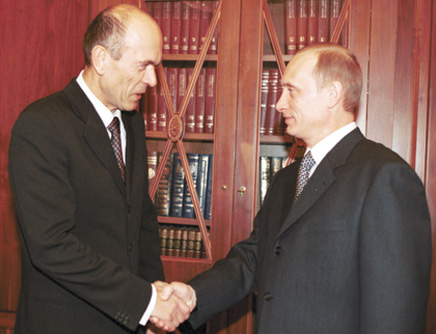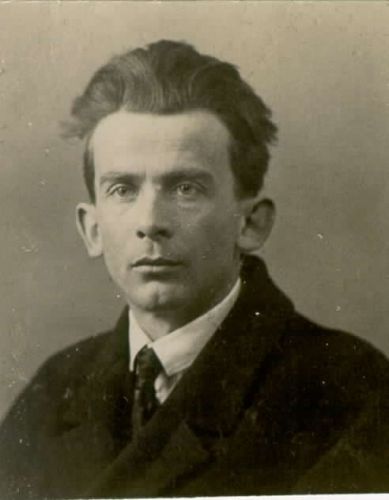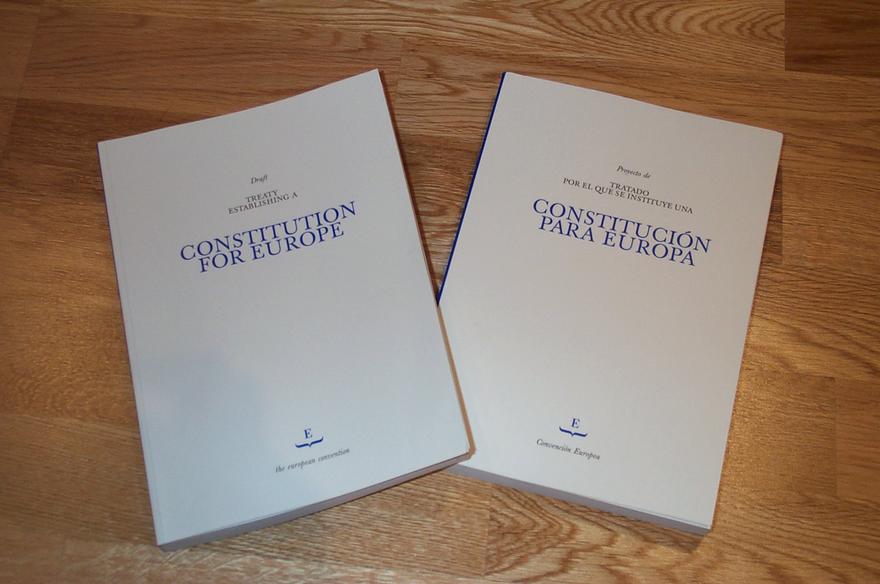|
Ivo Vajgl
Ivo Vajgl (born 3 March 1943) is a Slovenian politician and former Member of the European Parliament (MEP) from Slovenia. In his second term in the European Parliament he was a member of DeSUS and an individual member of the European Democratic Party (EDP), while in the European Parliament he was a member of the ALDE Group. He has announced his candidacy in the 2022 Slovenian presidential election. Political career Born in Maribor, he attended the University of Ljubljana. He was appointed foreign minister by Prime Minister Anton Rop on 6 July 2004, replacing Dimitrij Rupel, who left the Liberal Democracy of Slovenia (LDS) party to join the opposition Slovenian Democratic Party. Vajgl's tenure ended on 3 December 2004 with Rupel's reappointment to the position in the new administration of Janez Janša, formed after the 2004 elections to the National Assembly, which were held on 3 October. As foreign minister, Vajgl joined Rop in signing the Treaty establishing a Constitution for ... [...More Info...] [...Related Items...] OR: [Wikipedia] [Google] [Baidu] |
Member Of The European Parliament
A Member of the European Parliament (MEP) is a person who has been elected to serve as a popular representative in the European Parliament. When the European Parliament (then known as the Common Assembly of the ECSC) first met in 1952, its members were directly appointed by the governments of member states from among those already sitting in their own national parliaments. Since 1979, however, MEPs have been elected by direct universal suffrage. Earlier European organizations that were a precursor to the European Union did not have MEPs. Each member state establishes its own method for electing MEPs – and in some states this has changed over time – but the system chosen must be a form of proportional representation. Some member states elect their MEPs to represent a single national constituency; other states apportion seats to sub-national regions for election. They are sometimes referred to as delegates. They may also be known as observers when a new country is seekin ... [...More Info...] [...Related Items...] OR: [Wikipedia] [Google] [Baidu] |
Janez Janša
Ivan Janša (; born 17 September 1958), baptized and best known as Janez Janša (), is a Slovenian politician who served three times as a prime minister of Slovenia, a position he had held from 2004 to 2008, from 2012 to 2013, and from 2020 to 2022. Since 1993, Janša has led the Slovenian Democratic Party, which has emerged as the pre-eminent Slovenian conservative party. Janša lost his fourth bid for prime minister in April 2022, his party defeated by the Freedom Movement party. Janša served as Minister of Defence from 1990 to 1994, a post he had also held during the Slovenian War of Independence. Janša served as prime minister from 2004 to 2008, and again became prime minister in 2012, following an early election in December 2011. On 27 February 2013, Janša's second government was ousted in a vote of non-confidence. In June 2013, Janša was sentenced to two years in prison on corruption charges. The ruling was confirmed by Slovenia's higher court in April 2014, but after ... [...More Info...] [...Related Items...] OR: [Wikipedia] [Google] [Baidu] |
Politicians From Maribor
A politician is a person active in party politics, or a person holding or seeking an elected office in government. Politicians propose, support, reject and create laws that govern the land and by an extension of its people. Broadly speaking, a politician can be anyone who seeks to achieve political power in a government. Identity Politicians are people who are politically active, especially in party politics. Political positions range from local governments to state governments to federal governments to international governments. All ''government leaders'' are considered politicians. Media and rhetoric Politicians are known for their rhetoric, as in speeches or campaign advertisements. They are especially known for using common themes that allow them to develop their political positions in terms familiar to the voters. Politicians of necessity become expert users of the media. Politicians in the 19th century made heavy use of newspapers, magazines, and pamphlets, as well a ... [...More Info...] [...Related Items...] OR: [Wikipedia] [Google] [Baidu] |
Living People
Related categories * :Year of birth missing (living people) / :Year of birth unknown * :Date of birth missing (living people) / :Date of birth unknown * :Place of birth missing (living people) / :Place of birth unknown * :Year of death missing / :Year of death unknown * :Date of death missing / :Date of death unknown * :Place of death missing / :Place of death unknown * :Missing middle or first names See also * :Dead people * :Template:L, which generates this category or death years, and birth year and sort keys. : {{DEFAULTSORT:Living people 21st-century people People by status ... [...More Info...] [...Related Items...] OR: [Wikipedia] [Google] [Baidu] |
1943 Births
Events Below, the events of World War II have the "WWII" prefix. January * January 1 – WWII: The Soviet Union announces that 22 German divisions have been encircled at Stalingrad, with 175,000 killed and 137,650 captured. * January 4 – WWII: Greek-Polish athlete and saboteur Jerzy Iwanow-Szajnowicz is executed by the Germans at Kaisariani. * January 11 ** The United States and United Kingdom revise previously unequal treaty relationships with the Republic of China (1912–1949), Republic of China. ** Italian-American anarchist Carlo Tresca is assassinated in New York City. * January 13 – Anti-Nazi protests in Sofia result in 200 arrests and 36 executions. * January 14 – January 24, 24 – WWII: Casablanca Conference: Franklin D. Roosevelt, President of the United States; Winston Churchill, Prime Minister of the United Kingdom; and Generals Charles de Gaulle and Henri Giraud of the Free French forces meet secretly at the Anfa Hotel in Casablanca, Morocco, to plan the ... [...More Info...] [...Related Items...] OR: [Wikipedia] [Google] [Baidu] |
2014 European Parliament Election In Slovenia
2014 European Parliament elections were held in Slovenia on 25 May 2014. It was the first in the series of three elections held in the 2014, and the major test leading up to the parliamentary elections in July. The political atmosphere was in a crisis that started with the fall of Borut Pahor's government, then Janez Janša's government in 2013, the latter coming after Janša was accused of corruption. The cabinet of Alenka Bratušek was breaking up, as the former leader of the Positive Slovenia Zoran Janković, who was under the suspicion of corruption, announced his candidature for party president, even though the coalition parties threatened to leave the government if he was to be elected, which later he was. The main characteristic of the elections was the participation of several new parties, founded during the recent years of crisis. Verjamem was among the last parties to be founded before the elections, and surprisingly finished in third place, winning one seat in the Eur ... [...More Info...] [...Related Items...] OR: [Wikipedia] [Google] [Baidu] |
2009 European Parliament Election In Slovenia
The 2009 European Parliament election in Slovenia was the election of the delegation from Slovenia to the European Parliament in 2009. Candidates Opinion polls Results References Slovenia Slovenia ( ; sl, Slovenija ), officially the Republic of Slovenia (Slovene: , abbr.: ''RS''), is a country in Central Europe. It is bordered by Italy to the west, Austria to the north, Hungary to the northeast, Croatia to the southeast, an ... European Parliament elections in Slovenia 2009 in Slovenia {{EU-stub ... [...More Info...] [...Related Items...] OR: [Wikipedia] [Google] [Baidu] |
Zares
Zares – Social Liberals ( sl, Zares – socialno-liberalni) was a social-liberal political party in Slovenia. Its first president was Gregor Golobič, former Secretary General of the Liberal Democracy of Slovenia and former close advisor to the late Janez Drnovšek, who had previously abandoned active political involvement due to disagreements with his party. Until October 2011, the party was called Zares - New Politics (''Zares - nova politika''), when the party adopted its current title. The party supported a social progressive and economically social-liberal agenda, strongly supported the European Union and was a staunch opponent of the former Slovenian Prime Minister Janez Janša. Since 17 November 2007, ''Zares'' has been an observer member of the Liberal International, and was also a member of the Alliance of Liberals and Democrats for Europe (ALDE). History ''Zares'' was founded in 2007 as the result of a split within the Liberal Democracy of Slovenia, when 6 MPs of the ... [...More Info...] [...Related Items...] OR: [Wikipedia] [Google] [Baidu] |
Janez Drnovšek
Janez Drnovšek (; 17 May 1950 – 23 February 2008) was a Slovenian liberal politician, President of the Presidency of Yugoslavia (1989–1990), Prime Minister of Slovenia (1992–2002, with a short break in 2000) and President of Slovenia (2002–2007). Youth and early career Drnovšek was born in Celje and was raised in the small town of Kisovec in the Municipality of Zagorje ob Savi, where his father Viktor (1925–2005) was the local mine chief and his mother Silva (1921–1976) was a homemaker. Drnovšek graduated from the University of Ljubljana with a degree in economics in 1973. Meanwhile, he worked as an intern at a Le Havre bank. In 1975, at the age of 25, he became chief financial officer at SGP Beton Zagorje, a construction company. Two years later he became, for one year, an economic adviser at the Yugoslav embassy in Cairo. He defended his master's thesis in 1981, and in 1986 he defended his dissertation at the Faculty of Economics and Business at the Universit ... [...More Info...] [...Related Items...] OR: [Wikipedia] [Google] [Baidu] |
President Of Slovenia
The president of Slovenia, officially the president of the Republic of Slovenia ( sl, Predsednik Republike Slovenije), is the head of state of the Republic of Slovenia. The position was established on 23 December 1991 when the National Assembly (Slovenia), National Assembly passed a new Constitution of Slovenia, constitution as a result of independence from the Socialist Federal Republic of Yugoslavia. According to the constitution, the president is the highest representative of the state. In practice, the position is mostly ceremonial. The president can appoint high ranking officials such as the head of the Bank of Slovenia, Central Bank of Slovenia, but they have to be confirmed by the parliament. Among other things, the president is also the commander-in-chief of the Slovenian Armed Forces. The office of the president is the Government Building and President's Office, Presidential Palace in Ljubljana. The president is directly elected by universal adult suffrage for a term of f ... [...More Info...] [...Related Items...] OR: [Wikipedia] [Google] [Baidu] |
Rome
, established_title = Founded , established_date = 753 BC , founder = King Romulus (legendary) , image_map = Map of comune of Rome (metropolitan city of Capital Rome, region Lazio, Italy).svg , map_caption = The territory of the ''comune'' (''Roma Capitale'', in red) inside the Metropolitan City of Rome (''Città Metropolitana di Roma'', in yellow). The white spot in the centre is Vatican City. , pushpin_map = Italy#Europe , pushpin_map_caption = Location within Italy##Location within Europe , pushpin_relief = yes , coordinates = , coor_pinpoint = , subdivision_type = Country , subdivision_name = Italy , subdivision_type2 = Region , subdivision_name2 = Lazio , subdivision_type3 = Metropolitan city , subdivision_name3 = Rome Capital , government_footnotes= , government_type = Strong Mayor–Council , leader_title2 = Legislature , leader_name2 = Capitoline Assemb ... [...More Info...] [...Related Items...] OR: [Wikipedia] [Google] [Baidu] |
Treaty Establishing A Constitution For Europe
The Treaty establishing a Constitution for Europe (TCE; commonly referred to as the European Constitution or as the Constitutional Treaty) was an unratified international treaty intended to create a consolidated constitution for the European Union (EU). It would have replaced the existing European Union treaties with a single text, given legal force to the Charter of Fundamental Rights, and expanded qualified majority voting into policy areas which had previously been decided by unanimity among member states. The Treaty was signed on 29 October 2004 by representatives of the then 25 member states of the European Union. It was later ratified by 18 member states, which included referendums endorsing it in Spain and Luxembourg. However, the rejection of the document by French and Dutch voters in May and June 2005 brought the ratification process to an end. Following a period of reflection, the Treaty of Lisbon was created to replace the Constitutional Treaty. This contained man ... [...More Info...] [...Related Items...] OR: [Wikipedia] [Google] [Baidu] |





